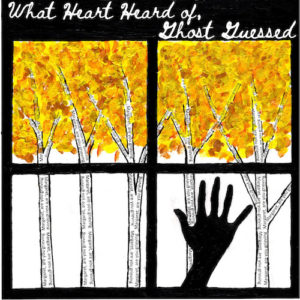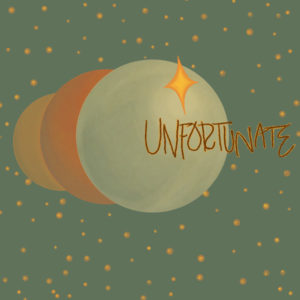
Update, 7 Jul 2022: I’ve taken a fair amount of heat for the sin of admitting I’d not read Sadly, Porn before producing the following post. Note that I did read the Amazon sample before writing what follows, which is 10% of the book’s opening; I don’t count that as a full read, and didn’t want to quibble about that point when I first published this. Scott Alexander’s review quotes substantially from the book as well, but again, another quibble.
What my detractors don’t seem to get is that this post spends the bulk of its energies examining W. H. Auden’s “West’s Disease” and not Edward Teach’s book. The post originated as a comment to Scott Alexander’s follow-up to his review, but as my comment grew and became more involved, I decided to publish it here, on my blog.
As such, this post should be framed as “If Astral Codex Ten and Resident Contrarian are correct about this one point in Sadly, Porn, it relates to West’s Disease in this way…”
But, of course, it depends on the reader to carry the logic from there, and not simply dunk on me and walk off with LOLs.
I am now reading Sadly, Porn. For the record, I’ve read nothing so far that changes my mind on any of my thoughts below. If anything, it’s only cementing my position.
Allow me to state this up-front: I’ve not read Edward Teach’s Sadly, Porn. Scott Alexander of Astral Codex Ten (ACX) has, though, and in response wrote a rather lengthy and discursive review, as well as a follow-up on the comments it elicited. At this moment, most of my understanding of Sadly, Porn comes from these sources (which I freely admit is an imperfect substitute for reading the book).
From what I’ve gathered, Sadly, Porn is a meandering and intentionally obscure treatise (diatribe?), grounded in psychoanalytics, which purports to explain—among other things—the ways people lie to themselves. Released in December 2021, the Kindle edition clocks in at over 1,100 pages, brimming with extended discourses on topics you might think plucked from the air, such as a ten-page examination of Shel Silverstein’s The Giving Tree. It’s also larded with David Foster Wallace-esque footnotes and Heartbreaking Work of Staggering Genius-style exhortations directed at the reader. The author opens with a thirty-page erotica story which, he later claims, is only included to scare off readers. (An odd strategy, since there are a multitude of writers producing such fiction for a lucrative living.) Really, to get a good idea of the book’s scope, read the ACX review.
What lit my interest in it comes from ACX taking a stab at boiling down Sadly, Porn to its core thesis:
Psychologically healthy people have desires. Sometimes they fantasize about these desires, and sometimes they act upon them. You’ve probably never met anyone like this.
Psychologically unhealthy people, e.g., you and everyone you know, don’t have desires, at least not in the normal sense. Wanting things is scary and might obligate you to act toward getting the thing lest you look like a coward. But your action might fail, and then you would be the sort of low-status loser who tries something and fails at it.
Again, from what I’ve gathered, Edward Teach believes that social status is the chief (or even sole) motivator of human behavior. (Or, perhaps he doesn’t; ACX makes it clear the book is too cagey to state its arguments plainly.)
Teach certainly paints us all as loathsome meat-bags of pettiness. Yet there’s something familiar about his observations that makes it difficult to reject his assertions. In a time where social media has devised a multitude of ways to score our social standing (via follower counts, likes, retweets, and so on), and in a culture endlessly promoting concepts like self-actualization and fame, his claims about the primacy of status-seeking has substance.
Now compare Teach’s accounting of Man’s damnable condition with W. H. Auden’s analysis of Nathanael West’s novels, where he first describes “West’s Disease”:
This is a disease of consciousness which renders it incapable of converting wishes into desires. … All wishes, whatever their apparent content, have the same and unvarying meaning: “I refuse to be what I am.” [But the sufferer] cannot desire anything, for the present state of the self is the ground of every desire, and that is precisely what the wisher rejects. [Emphasis mine.]

To simplify Auden’s distinction: A wish is the simple act of imagining oneself as a different person, or in a different situation; a desire is imagining how one might convert one’s current self into a different person or situation. A wish is wanting to be thin; a desire is vowing to join a gym and work-out every day (even if one doesn’t act on it). West’s Disease is the inability to transform one to the other, leading to inaction, loathing, and rage.
The finest examples of West’s Disease may be found in The Day of the Locust, Nathanael West’s most well-known novel. It’s a brilliant and acidic look at 1930s Hollywood, as witnessed by a motley group of misfits well-distanced from Tinseltown’s glamour, money, and success. “Hollywood’s success as a dream factory is predicated on knowing our wishes and actualizing them on the silver screen,” I wrote two years ago. “That’s why Hollywood appears a tantalizing cure for West’s Disease.”
Auden’s diagnosis that a person with West’s Disease “cannot desire anything” echoes another summation of Sadly, Porn from blogger Resident Contrarian:
[Teach asserts] we in general are incapable of action; we don’t want to act but also can’t act, and we rely on a nebulous “them” to put us on a track towards having to do it. … we want a situation where we don’t have to take an action, but where an action is demanded of us by circumstance.
I don’t think it’s a coincidence that RC’s example (“you don’t want to talk to the pretty girl; you want her to trip so you have to catch her”) sounds like a stock scene in a Hollywood romantic comedy. And I do equate wishing, in Auden’s terms, with Teach’s idea that we crave an externality to occur that actualizes our wishes for us. Teach is perhaps exploring Auden’s wish mechanism a bit more fully, but it looks to me that Auden in 1962 struck upon the same vein of thinking that Teach is attempting to communicate in 2022.

West’s Disease is what paralyzes the misfits in The Day of the Locust. These Hollywood outsiders witness the fruits of Hollywood’s money and glamour being distributed to others, never themselves. They want success, but success is supposed to come to them, not vice-versa. Faye Greener, the only character who can claim to have a film career in front of the camera, complains “the reason she wasn’t a star was because she didn’t have the right clothes.” (There’s a similar shrugging passivity in McCoy’s They Shoot Horses, Don’t They?)
But Auden is less absolutist than Teach. It’s West’s Disease, after all: It only afflicts certain individuals, whereas Teach finds it to be widespread. (Perhaps Teach is right, though. Perhaps West’s Disease is contagious and has spread virulently since 1962. Or since 1939, when Locust was published.)
Auden also does not pin down West’s Disease as a natural state of the human psyche, but as a result of modernity:
There have, no doubt, always been cases of West’s Disease, but the chances of infection in a democratic and mechanized society like our own are much greater than in the more static and poorer societies.
When, for most people, their work, their company, even their marriages, were determined, not by personal choice or ability, but by the class into which they were born, the individual was less tempted to develop a personal grudge against Fate; his fate was not his own but that of everyone around him.
But the greater the equality of opportunity in a society becomes, the more obvious becomes the inequality of the talent and character among individuals, and the more bitter and personal it must be to fail. [Again, emphasis mine.]
This jibes with one of my intuitions as I read ACX’s review: That Teach’s near-universality of status-seeking in the human psyche is more likely the result of (or greatly amplified by) recent trends in technology and social organization. Auden wrote the above when notions like meritocracy were ripe in the air and corporate ladders were being erected sky-high. Today, social media and tabloid-esque journalism is king, can show you the numbers to prove it, and has disjointed our culture in unexpected ways.
What’s more, 21st-century American popular media doesn’t merely make “inequalities of talent and character” obvious; our celebrity-obsessed culture revels in and celebrates them. As Budd Schulberg wrote about status climbing: “It will survive as long as money and prestige and power are ends in themselves, running wild, unharnessed from usefulness.”

The Day of the Locust opens describing those with West’s Disease as those who “loitered on the corners or stood with their backs to the shop windows and stared at everyone who passed. … They had come to California to die.” In the final chapter, they rise up in revolt, and Los Angeles burns. Auden saw West’s Disease as damaging not merely to the individual, but to the society around them.
Teach seems to treat West’s Disease as an intellectual, and perhaps masculine, failing. (Apparently cuckoldry is a running theme throughout Sadly, Porn.) The book adopts a scolding and sneering tone toward the reader, implicating them as weak and blithe to this delusion of false desires and status envy.
I know which author I’m inclined to listen to.





